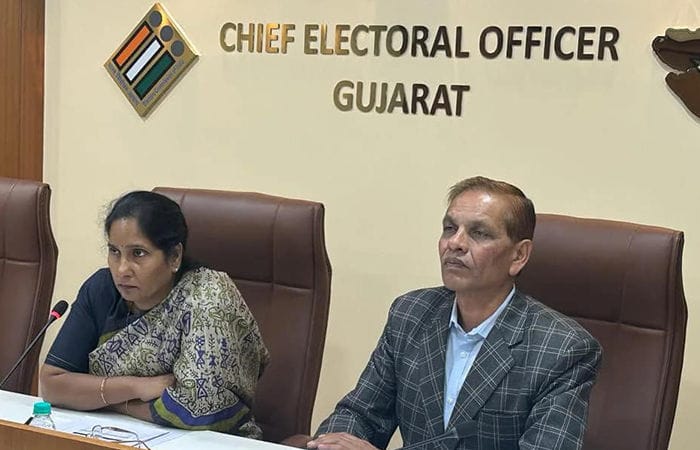To maintain law and order during the upcoming Lok Sabha elections in Gujarat, over 27,300 non-bailable warrants have been served and a total of 47,900 licensed weapons have been seized, as per the directions of the Election Commission of India (ECI).
756 flying squads operational in the state to monitor and control election expenditure have seized a total of total goods worth ₹66.09 cr in the state, including ₹5.72 cr in cash, 2.97 lakh litres of liquor worth ₹9.26 cr, 34.59 kg of gold and silver worth ₹20.13 cr, 436.98 kg of illegal drugs worth ₹50 lakh, and other items including cars, motorcycles, cigarettes, lighters, and betel nuts worth ₹30.47 cr.
A total of 5,825 complaints have been registered on the cVIGIL mobile app, including 816 complaints regarding violations of the model code of conduct (MCC), 4,170 complaints related to EPIC (Elector’s Photo Identity Card), 425 related to voter lists, 92 related to voter ID cards, and 1,138 others.
In addition, 50 complaints have been received on the helpline number of the control room operating at the Chief Electoral Officer’s (CEO) office.
Along with this, a total of 260 complaints have been received by post and email at the DEO offices, including 14 related to the media, 3 related to political parties, 14 related to the Election Commission, and 229 others.
EVM randomisation
State CEO P Bharathi is reviewing the final preparations before the elections, including the completion of the first randomization of polling staff. The training of all presiding officers and polling officers has also been completed.
More than 14 lakh new EPIC numbers have been distributed.
CEO Bharathi mentioned that meetings are to be conducted at the booth level, and invitation letters will be given to increase female and youth voting numbers.
The first randomisation of EVMs (Electronic Voting Machines) will be conducted today in the presence of nationally recognised political parties by all District Election Officers (DEOs) of the state, which will continue till Apr 8.
After the first randomization, the list of randomised EVMs will be provided to the political parties.
Along with this, the EVMs will be handed over to the assembly constituencies of the district, where they will be stored in the strongroom as per protocol in the presence of party representatives.
Disabled-senior citizen voter facilities
All DEOs have been instructed to make arrangements for ramps, wheelchairs, and volunteers at the polling stations for differently-abled and senior citizen voters.
At the same time, organisations have also been appointed in each district as the nodal agency working for the disabled.
Free transportation facilities will also be provided to 40% or more disabled voters and senior voters aged 85 years and older in urban and rural areas.



